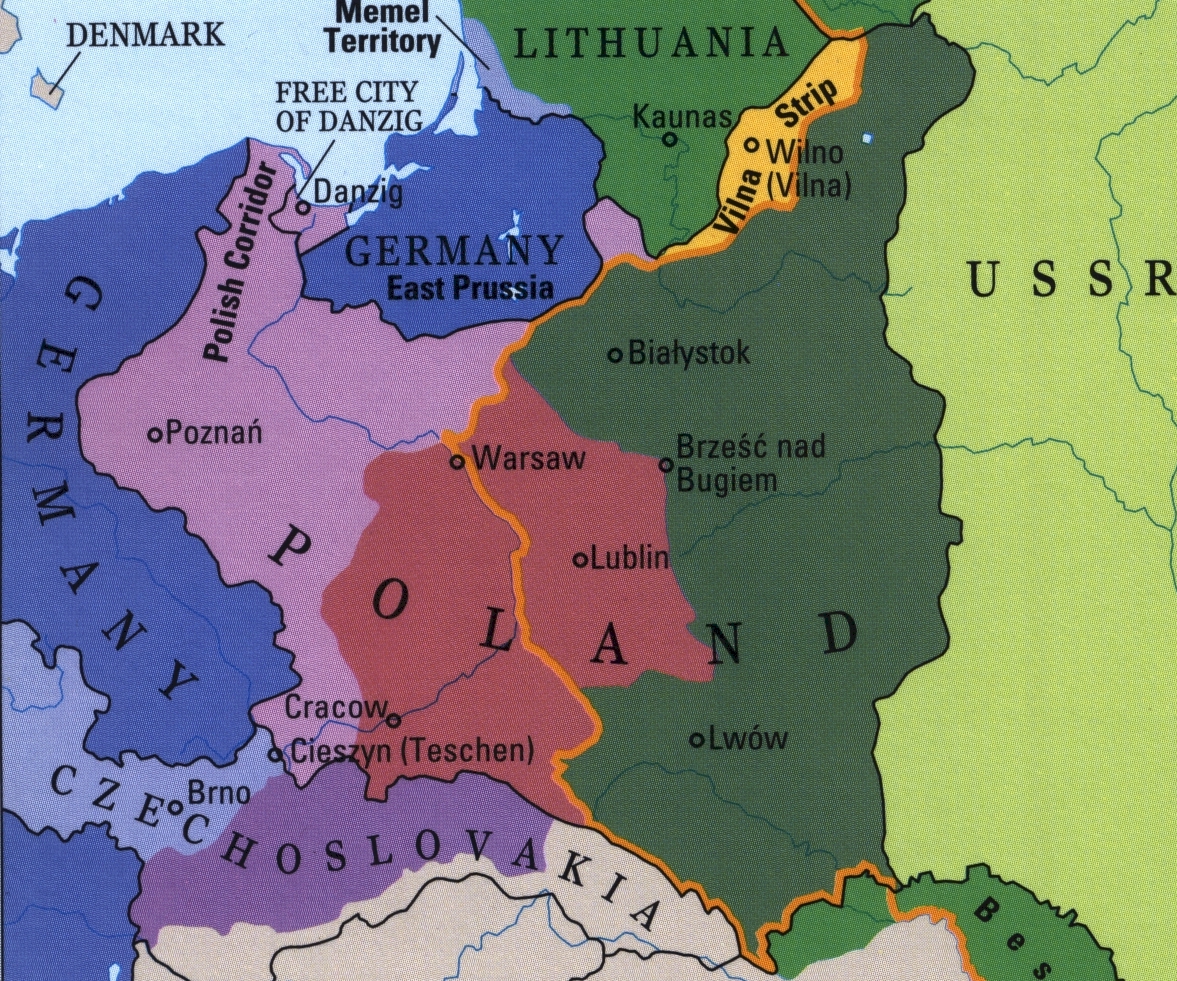The whole "spheres of influence" section of the M-R Pact had to be
re-negotiated, because the first agreement was over spheres of influence in Poland
-- and Poland, as a state, no longer existed. So, it was re-negotiated, and the boundaries
changed from the first version. Germany got more land of the former Polish state than was
called for by the original agreement of August 23 while Lithuania was added to the sphere
of influence of the USSR.
The Secret Supplementary Protocol signed on August 23, 1939, shall be amended in item 1
to the effect that the territory of the Lithuanian state falls to the sphere of influence
of the U.S.S.R., while, on the other hand, the province of Lublin and parts of the
province of Warsaw fall to the sphere of influence of Germany...
- Nazi-Soviet Relations, ed. Jane Degras (New York: Didier, 1948), p. 107. At http://www.ibiblio.org/pha/nsr/nsr-03.html#34
(The whole book is online, with the pagination of the original, at http://www.ibiblio.org/pha/nsr/nsr-preface.html
)
The Soviets only claimed sovereignty over areas where the majority of the population
was either Belorussian or Ukrainian. These were the parts of the Russian Republic that had
been seized by Pilsudski’s army in 1920 and ceded by Russia to Poland in the Treaty
of Riga of March 1921.
They were to the East of the Curzon Line. In 1919 the non-Polish population had been in
the large majority. Even after the Polish government had settled Poles in these areas to
“polonize” them, Poles were still in the minority. The majority of the
population were Ukrainian and Belorussian. |

